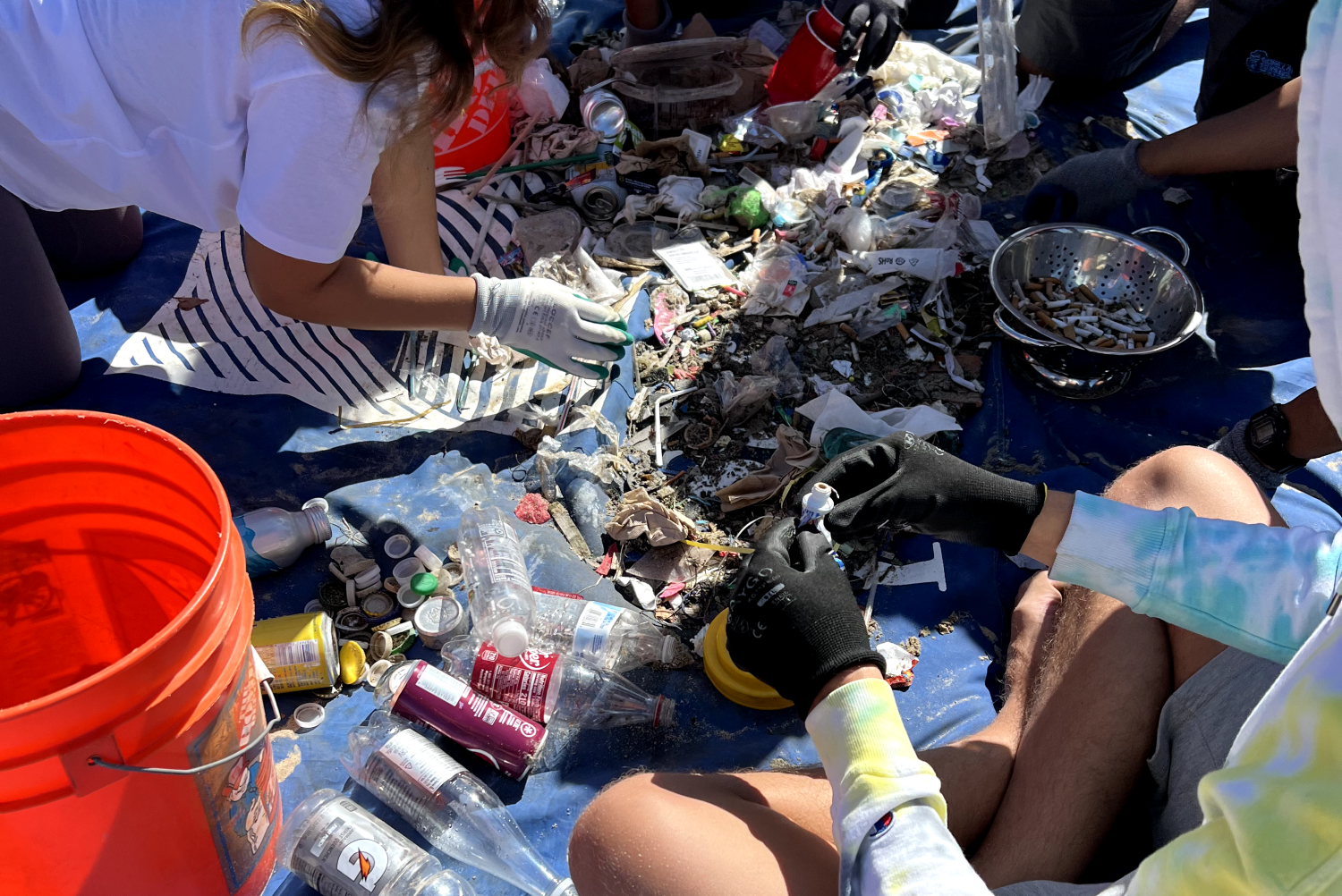Is Paper Recyclable? The Easiest Way To Make Sure
In the United States alone, we produce 292.4 million tons of waste per year, which is 4.9 pounds per person, per DAY. This number is staggering and largely contributes to the overwhelming amount of waste polluting our landfills and natural environments.
Our oceans are already tremendously oversaturated with garbage and waste, which sits there emitting harmful greenhouse gasses such as methane as it attempts to break down over time.
We need to focus on cleaning up what waste is already taking up space on the planet instead of devoting finite resources to produce more, resulting in more pollution.
We can accomplish this and redirect our focus on sustainability in various ways, one of the simplest methods is recycling. While recycling might not take much more effort than throwing out our regular trash, it can significantly impact the environment.
Regular waste disposed of in the garbage will inevitably become some kind of pollution, whether harming wildlife in the ocean or polluting our air after being incinerated. Not to mention the amounts of energy and resources consumed by creating more materials when we already have everything we need.
You can recycle resources like metal, certain glass bottles, textiles, some kinds of plastics, and paper products to reduce environmental harm. Once we narrow down recyclables into these categories, we need to hone in more specifically to recycle them correctly. Today, we will be focusing on one of the most commonly recycled materials out there: paper.
Can Any Paper Be Recycled?
Like with all other categories of recyclable items, there are some limits on what can and cannot be reused. Most kinds of paper are recyclable, but not all— we will talk more in-depth about non-recyclable forms of paper later on.
Certain paper products will almost always be recyclable, so you can feel confident putting them in the recycling bin. However, if you still want to double-check to be sure, you can look at the specific labeling on the product, which should give you some answers. Otherwise, searching on the internet is not a bad idea for an added level of assurance.
What Kind of Paper Can Be Recycled?
As we said, you can almost always recycle various kinds of paper across the board. Many of these paper products are exceedingly common, so recycling them rather than just throwing them out is immensely helpful to our environment. This is a non-exhaustive list of the many kinds of paper you can recycle, there may be materials outside of this list that you can put curbside to be picked up and processed by a recycling service.
Writing and Notebook Paper
The amount of writing and notebook paper we use every year may have gone down due to the prominence of computers, tablets, and other electronic means of notetaking. However, many people find that there is still no adequate substitution for the good old reliable pen and paper. Printer or computer paper, notebook pages, and similar forms of writing paper are recyclable.
Wood products (including paper) account for 10% of the total deforestation our planet faces. We are using a ton of paper, which is contributing to environmental harm.
When we consider how much of our natural wilderness and rainforests are being destroyed, it becomes abundantly clear that any efforts to help are needed. Even if pen and paper is your favorite way to stay organized, try to reduce your usage of new paper products to conserve resources.
Newspapers and Catalogs
Although the amount of print media has diminished in recent years, there are still many newsprints, flyers, and magazines. Having the ability to recycle both newspapers and magazines is an enormous asset to us in terms of preserving the resources we currently have and reducing waste.
Rather than tossing your magazine in the trash after reading it, take that extra step and place it in the recycling bin. Who knows? It may become another newspaper or magazine, or it could become something completely new entirely. What is important is that we allow its story to continue, helping the earth in the process.
Office Paper
There is still a need for printed communication in office environments, making office paper a common contributor to paper waste. However, we can easily and significantly mitigate this damage by recycling instead of throwing it out.
If you usually shred office papers before throwing them away, you may be able to continue doing so before recycling them.
However, note that not all municipalities and recycling facilities allow or accept shredded paper, and the ones that do typically need it to be self-contained.
Envelopes, Packing and Shipping Cardboard Boxes
The last recyclable items on our list are envelopes, paperboard, and other paper shipping materials. You should remove any tape or plastic from them before putting them in the recycling to ensure that contaminants do not sabotage the recycling process.
How Do You Know If Paper Is Recyclable?
Other than the kinds of paper that we have laid out as recyclable, it is important to remember that different municipalities can have different rules regarding recycling. If you are unclear whether some of your paper products are recyclable in your area, like phone books, egg cartons, and wrapping paper, you can search the information online or call your local facility.
What Types of Paper Cannot Be Recycled?
While most paper is recyclable, this principle will no longer apply if the paper product in question is saturated with food grease or has been coated in glue or a plastic film treatment. Under these guidelines, paper products such as pizza boxes, dirty napkins, used paper cups or paper plates, wax paper, juice boxes, and milk cartons cannot be recycled.
Some municipalities and states will have slightly different guidelines than others regarding recycling programs. This will simply depend on your local recycling facilities and what their machinery has been built to handle. If you are unclear on your community’s regulations regarding recycling, a quick search on the internet should be able to clear that information up for you quite quickly.
What Does 100% Recycled Paper Mean?
The label “100% recycled” certainly sounds good on paper (pun intended), but more investigation often needs to be done. What we typically think of as recycling is more specifically referred to as post-consumer recycling. In many cases, 100% recycled only means that the paper fibers were partially post-consumer recycled, but primarily through other means.
Why Is It Important To Recycle Paper?
It is important to recycle paper for two different but equally important reasons. For one, recycling the paper we already have and keeping it in the production cycle reduces the number of resources that we waste.
Recycling paper can also help reduce the amount of energy we use. While this relationship seems simple, it is more complex than meets the eye. Allow us to explain.
How Much Energy is Saved By Recycling Paper?
While recycling materials does use less energy than simply throwing them out, the process of recycling still takes up a fair amount of energy. From the trucks used to transport and pick up your recycling to the immense amounts of energy used at recycling facilities, recycling is not always as much of an eco-friendly dream as we think it to be.
While recycling is a better alternative to regular trash, it is still important to commit to other kinds of sustainability in addition to recycling. Significantly limiting our plastic use and making sure to reuse and repurpose whenever possible can help us make massive strides in sustainability.
Conclusion
Recycling is an easy and accessible step toward sustainability for people anywhere on their journey to becoming more eco-conscious.
Here at Bite, we believe that taking care of your body and taking care of our planet go hand in hand. That is why our products and their packaging are designed to be recycled, repurposed, and reused. We make it easy for you to reduce your impact on the environment, all while still practicing the self-care you deserve.
By being aware of what materials are and are not recyclable, you can become an expert and help the planet before you know it.
Sources:
National Overview: Facts and Figures on Materials, Wastes and Recycling | US EPA
Sustainability Challenges in the Paper Industry | AIChE
101: Recycled Content vs Recyclability | Sustainablepackaging.org


